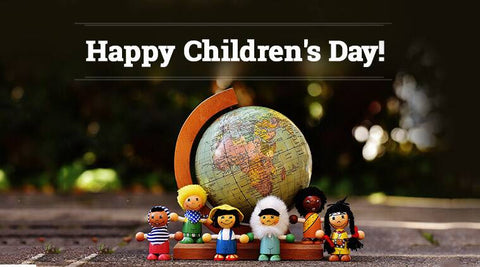How to Celebrate International Children's Day in the Worldwide?
Share
On this day, all across the globe, various events take place, such as exhibitions of children’s art, celebratory concerts, charity events, and discussion round tables – all devoted to issues of childhood and adolescence.

In the US, on Children’s Day, which is not an official national holiday, the doors of hundreds of libraries, cultural centers, and public organizations open exceptionally, with the goal of motivating children to study and gain knowledge. Initially, the holiday was created to draw the attention of parents to the religious education of their children.
In Australia, during the National Children’s week, volunteers devote particular attention to children who have encountered themselves in a difficult life situation. Much attention is paid to children in foster families and pupils of specialized boarding schools. The main idea of this celebration is to give children an opportunity to enjoy their childhood.
In Japan, Children’s day is celebrated 3 times a year! The celebration is divided according to gender. On girls’ day, on March 3rd, people in Japan adorn their houses with dolls and fruits. On boys’ day, on May 5th – all of the attention is devoted to the culture of the samurai.
Last but not least, on November 15th, Japanese people celebrate the «shichi-go-san» which translates as «seven-five-three» and celebrates children of all ages and genders. Why those numbers? For Japanese people, those numbers are considered to be magical and the happiest ages of a child’s life. This celebration has a history that is almost three centuries old.
Two different dates for celebrating separately the day of the girls and the day of the boys exist.

In Sweden, too. On August 7th, boys have their celebration, and on December 13th, it is the turn of the girls. Boys usually put on lobster costumes as this is associated with courage, and perform in front of the public. Girls do not have a masquerade, however, on their day, they turn into little goddesses (which is associated with the country’s folklore) and do good deeds.
Ecuador has a tradition of handing out gifts to children of the age below 12 years old. Nevertheless, it surely does not mean that parents cannot spoil their older children a little bit on the 1st of June.
In New Zealand, through celebrating «Maori children», the country’s population focuses on the problems of the native tribes.
In Indonesia, festive events take place all around the country, and more than 400 fully functioning specialized help centers. The «Worthy Children» program has been launched in the country with the plan to raise the «golden» generation by 2045. Well, there is more than enough time for the realization of such a noble goal!
Germany has been divided into two parts during the years of the Cold War. On June 1st, in the Eastern part of the country, children were given sweets and toys, while in the Western part, on September 20th, the emphasis was heavily placed on politics and improving the living conditions of young people. After the unification of the GDR and the FRG, the country managed to keep both of the holidays and the traditions of their celebration.

In India, the problem of schooling is particularly acute. Children’s Day is celebrated on the birthday of one of the leaders of the state, Jawaharlal Nehru. He believed that the future of the nation depends on children’s’ social care which should be at the highest level. On November 14, a large number of educational, motivational and cultural events are held all around the country.
In Brazil, Children’s Day has been celebrated along with the feast of the Marian apparition for over a hundred years! Masquerades, concerts, and processions take place around the country on this day. The tradition of holding holiday sales firstly appeared in Brazil in the 1960s. At first, several companies were offering children products at discounted prices, today there are dozens and dozens of them.
In Russia, the 1st of June marks the beginning of the summer break at schools. This is also the case for the CIS countries. On June 1st, parents, teachers, and public figures receive their rewards.

People in Spain are known for their love for freedom and large public events, especially in parks. Celebrations are often held in the open air and they are free to anyone who wishes to join in for fun flash mobs or concerts.
In the UK, on this day, charity activities traditionally take place. The Queen’s subjects also conduct political speeches in which they demand a review of the state’s position. The government is criticized for «excessive care» about childhood, which borders on cruelty. In England, there are 50 parental litigation cases per 10,000 families. It may sometimes reach the point of absurdity – a child can be taken away from a family due to the fact that they are, for example, suffering from obesity.

Cherish our children, spend time with them. Seize the opportunity to spend time with your children and grandchildren. Make it your mission to:
-
Start new traditions.
-
Explore the outdoors.
-
Tell family stories.
-
Be creative through art or music.
-
Teach them something new.
-
Open your heart to new ideas.
-
Listen to your children.
-
Seek adventure with your children.
-
Break out of old routines.
-
Pursue new opportunities with your children.
Share your adventures with your children using #NationalChildrensDay to share on social media.

